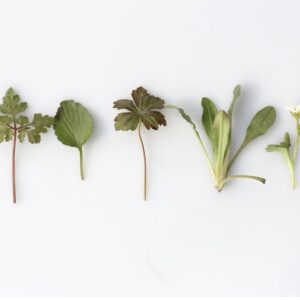
Enhancing Your Outdoor Space with Stylish Planters
Outdoor planters are versatile and stylish additions to any outdoor space, whether it’s a patio, balcony, or garden. These containers offer a creative way to showcase your favorite plants, flowers, and herbs while adding a touch of greenery and beauty to your surroundings. With a wide range of materials, shapes, and sizes available, you can choose planters that complement your outdoor decor and suit the needs of your plants. Additionally, you can find a planters guide online and learn more about them. From sleek and modern designs to rustic and charming styles, outdoor planters allow you to express your personality and create inviting outdoor spaces that delight the senses and provide a tranquil retreat.
Choosing the Right Herbs
The first step in growing your herbs is selecting the right ones for your needs and preferences. Consider the following factors:
Culinary Use: Think about the herbs you use most frequently in your cooking. Basil, parsley, thyme, rosemary, and mint are popular choices that can enhance a wide range of dishes.
Space and Environment: Take into account the space you have available for gardening and the environmental conditions in your area. Some herbs thrive in full sun, while others prefer partial shade.
Growing Difficulty: Evaluate your gardening experience and choose herbs that match your skill level. Some herbs, like basil and chives, are relatively easy to grow, while others, such as cilantro and lavender, may require more attention.
Purpose: Consider whether you want to grow herbs for culinary purposes, medicinal use, or simply for their aromatic qualities. This will influence the types of herbs you select.
Preparing Your Herb Garden
Once you’ve chosen your herbs, it’s time to prepare your herb garden. Follow these steps to create an optimal growing environment:
Location: Select a location for your herb garden that receives adequate sunlight and has well-draining soil. Raised beds or containers can be excellent options if you have limited space or poor soil quality.
Soil Preparation: Test your soil pH and amend it if necessary to ensure optimal growing conditions for your herbs. Incorporate organic matter such as compost to improve soil fertility and drainage.
Container Gardening: If you’re growing herbs in containers, choose pots with drainage holes and use a high-quality potting mix. Ensure that the containers are large enough to accommodate the herbs’ root systems.
Watering and Maintenance: Establish a regular watering schedule for your herbs, keeping in mind that different herbs have varying moisture requirements. Monitor for pests and diseases, and address any issues promptly to maintain healthy plants.
Caring for Your Herbs
Proper care is essential for the health and productivity of your herb garden. Here are some tips for caring for your herbs:
Watering: Water your herbs consistently, keeping the soil evenly moist but not waterlogged. Avoid overhead watering, as it can promote fungal diseases.
Pruning and Harvesting: Regularly prune your herbs to encourage bushy growth and prevent them from becoming leggy. Harvest herbs in the morning when their essential oils are most concentrated for optimal flavor.
Fertilization: Feed your herbs with a balanced fertilizer or compost tea every few weeks during the growing season to promote healthy growth and productivity.
Mulching: Apply a layer of organic mulch, such as straw or shredded leaves, around your herbs to conserve moisture, suppress weeds, and regulate soil temperature.
Using Your Homegrown Herbs
One of the most rewarding aspects of growing your herbs is being able to enjoy them in your culinary creations. Here are some ways to use your homegrown herbs:
Fresh Seasoning: Add freshly harvested herbs to salads, soups, sauces, marinades, and dressings for a burst of flavor and aroma.
Herbal Infusions: Create herbal infusions by steeping fresh herbs in hot water to make aromatic teas or flavored waters.
Preserving Herbs: Preserve your herbs by drying, freezing, or making herb-infused oils and vinegar. These methods allow you to enjoy your herbs year-round.
Medicinal Uses: Many herbs have medicinal properties and can be used to make teas, tinctures, or salves for various health benefits. Research the therapeutic properties of your herbs before using them medicinally.
Growing your herbs offers a multitude of benefits, both practical and personal. Here are some advantages of cultivating herbs at home:
Cost Savings: Growing your herbs can save you money compared to buying them from the store, especially if you use herbs frequently in your cooking.
Freshness and Flavor: Homegrown herbs are fresher and more flavorful than store-bought ones, enhancing the taste of your dishes.
Sustainability: Herb gardening promotes sustainability by reducing packaging waste and minimizing the carbon footprint associated with transporting herbs.
Therapeutic Benefits: Gardening, including herb gardening, has therapeutic benefits such as stress reduction, physical activity, and connection with nature.
Growing your herbs is a fulfilling and sustainable endeavor that can enrich your culinary experiences and enhance your well-being. By choosing the right herbs, preparing a suitable growing environment, and providing proper care, you can enjoy a bountiful herb garden and reap the rewards of your efforts. Whether you’re a seasoned gardener or a novice enthusiast, cultivating herbs at home is a journey worth embarking on. Happy gardening!